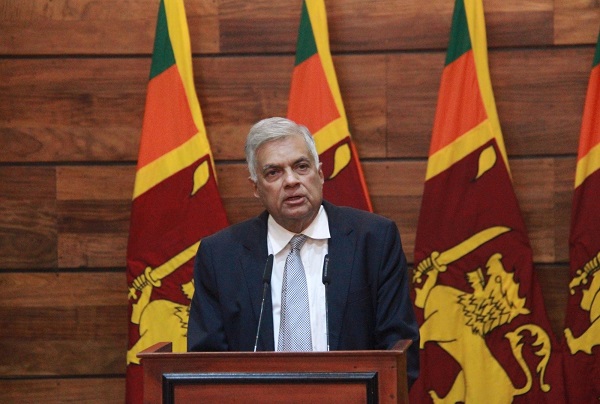Colombo, (Asian independent) The Sri Lankan Parliament on Friday passed, with over 2/3 majority, the 22nd Amendment to the Constitution curtailing certain powers of the President.
All main opposition parties voted together with the parties aligned with the government, led by President Ranil Wickremesinghe, in favour to make a total 174 out of 225 MPs at the third reading of the amendment.
Only one MP from Sri Lanka Podujana Peramuna (SLPP) voted against the amendment while most of the others from ex-President Gotabaya Rajapaksa’s party abstained from voting while the others were absent.
Main opposition, Samagi Janabalawegaya (United People’s Power), main Tamil party, the Tamil National Alliance and left-wing party Jathika Janabalawegaya (National People’s Power) representing the opposition in Sri Lanka parliament voted in favour of the Amendment. Most legislators of the ruling SLPP and its main ally Sri Lanka Freedom Party, led by former President Maithripala Sirisena, too voted in favour of the Amendment.
The Amendment reintroduced some features of 19th Amendment which was passed during
Sirisena-Wickremesinghe joint government which ruled the country from 2015 to 2019.
Curtailing super powers enjoyed by the President, the 22nd Amendment will shift some of President’s powers to the Constitutional Council representing both government and opposition lawmakers and independent bodies such as the National Election Commission (NEC), the Public Service Commission (PSC), the National Police Commission (NPC), the Human Rights Commission of Sri Lanka (HRCSL), the Commission to Investigate Bribery or Corruption (CIABOC), the Finance Commission and the Delimitation Commission which would be led by non-political independent persons.
Gotabaya Rajapaksa who was elected as President with a 2/3 majority in 2019, introduced 20th Amendment completely changing the 19th Amendment and giving more powers to the
President.
The new Amendment is also prohibit foreign nationals or those with dual-nationality from entering politics, a move that prevents ex-President Rajapaksa’s brother and former Finance Minister Basil Rajapaksa, who is a US citizen, from becoming involving in politics.
Passing of the 22th Amendment is also a crucial for Sri Lanka to get international assistance to come out from the ongoing economic crisis. Before Friday’s voting to the Amendment, Justice Minister Wijayadasa Rajapakshe who also tabled the 22nd Amendment to the Constitution, informed Parliament that passing of 22n amendment is vital to get the crucial support of the International Monetary Fund (IMF) and GSP+ trade concessions to the country. Sri Lanka awaits a $2.9 billion conditional concession from the IMF as one of the initial measures to recover from the crisis.
Following a severe economic catastrophe where people had to spent days in queues to obtain fuel, cooking gas and many other essentials, in March, people got on to the streets until the government led by Mahinda Rajapaksa was resigned and his brother Gotabya fled the country.
One of the main demands of the protestors was to reduce powers of the President.








